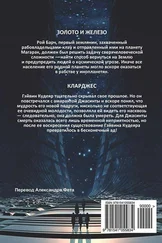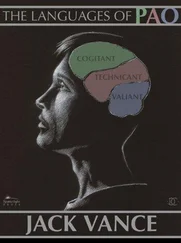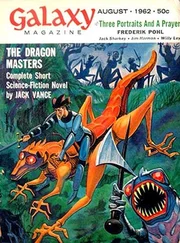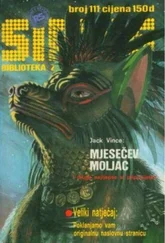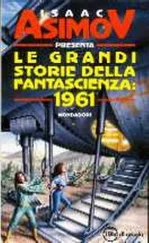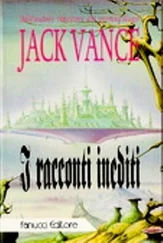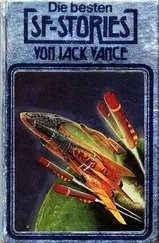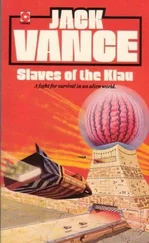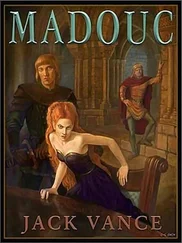Jack Vance - Planet of Adventure
Здесь есть возможность читать онлайн «Jack Vance - Planet of Adventure» весь текст электронной книги совершенно бесплатно (целиком полную версию без сокращений). В некоторых случаях можно слушать аудио, скачать через торрент в формате fb2 и присутствует краткое содержание. Жанр: Фантастика и фэнтези, на английском языке. Описание произведения, (предисловие) а так же отзывы посетителей доступны на портале библиотеки ЛибКат.
- Название:Planet of Adventure
- Автор:
- Жанр:
- Год:неизвестен
- ISBN:нет данных
- Рейтинг книги:4 / 5. Голосов: 1
-
Избранное:Добавить в избранное
- Отзывы:
-
Ваша оценка:
- 80
- 1
- 2
- 3
- 4
- 5
Planet of Adventure: краткое содержание, описание и аннотация
Предлагаем к чтению аннотацию, описание, краткое содержание или предисловие (зависит от того, что написал сам автор книги «Planet of Adventure»). Если вы не нашли необходимую информацию о книге — напишите в комментариях, мы постараемся отыскать её.
Planet of Adventure — читать онлайн бесплатно полную книгу (весь текст) целиком
Ниже представлен текст книги, разбитый по страницам. Система сохранения места последней прочитанной страницы, позволяет с удобством читать онлайн бесплатно книгу «Planet of Adventure», без необходимости каждый раз заново искать на чём Вы остановились. Поставьте закладку, и сможете в любой момент перейти на страницу, на которой закончили чтение.
Интервал:
Закладка:
Standing back in the shadows Reith was able to look down without fear of detection. He saw three groups of children, both male and female, twenty to each group. Like their elders they wore black cloaks and hats with flattened crowns.
The small white faces were peaked and pinched, and almost laughably earnest.
None spoke; staring into empty air they marched softly and solemnly through a drill or exercise. They were attended by three Pnumekin women of indefinite age, cloaked like the males and distinguishable only by lesser stature and somewhat less harshness of feature.
The children padded on and on through the exercise, the silence broken only by the shuffle of their feet. Nothing could be learned here, thought Reith. He looked in both directions, then set off to the left. An arched tunnel gave upon another balcony, which overlooked a chamber even larger than the first: a refectory. Tables and benches were ranked down the middle, but the chamber was vacant except for two Pnumekin, who sat widely separated, crouched low over bowls of gruel. Reith became aware of his own hunger.
He heard a sound. Along the balcony came a pair of Pnumekin, one behind the other. Reith's heart began to thump so loudly he feared they would surely hear the sound as they approached. He pulled down his head, hunched his shoulders, moved forward in what he hoped to be the typical Pnumekin gait. The two passed by, eyes averted, thoughts on matters far removed.
With somewhat more assurance Reith continued along the passage, which almost immediately expanded to become a roughly circular node, the junction for three corridors. A staircase cut from the natural gray rock curved down to the level below.
The corridors were desolate and dim; Reith thought them unpromising. He hesitated, feeling tired and futile. The charts, he decided, were of no great help; he needed the assistance, willing or otherwise, of a Pnumekin. He was also very hungry. Gingerly he went to the staircase and, after ten seconds of indecision, descended, begrudging every step which took him farther from the surface. He came out into a small anteroom beside the refectory. A portal nearby gave upon what appeared to be a kitchen. Reith looked in cautiously. A number of Pnumekin worked at counters, presumably preparing food for the children in the exercise room.
Reith backed regretfully away, and went off down a side passage. This was dim and quiet, with only a few light-grains in the high ceiling. After a hundred feet the passage jogged to the side and came to an abrupt end at the brink of a drop-off. From below the sound of running water: more than likely a disposal-place for waste and garbage, Reith reflected. He halted, wondering where to go and what to do, then returned to the anteroom. Here he discovered a small storage chamber in which were stacked bags, sacks and cartons. Food, thought Reith. He hesitated; the chamber must frequently be used by the cooks.
From the exercise room came the children, walking in single file, eyes fixed drearily on the floor. Reith backed into the storage room: the children would discern his strangeness far more readily than adults. He crouched at the back of the room, behind a pile of stacked cartons: by no means the most secure of hiding places, but not altogether precarious. Even if someone entered the chamber he stood a good chance of evading attention. Reith relaxed somewhat. He brought forth the portfolio and folded back the limp blue leather cover. The pages were a beautiful soft vellum; the cartography was printed with most meticulous care in black, red, brown, green and pale blue. But the patterns and lines conveyed no information; the legend was set forth in undecipherable characters. Regretfully Reith folded the portfolio and tucked it into his jacket.
From a counter in front of the kitchen the children took bowls and carried them into the refectory.
Reith watched through a cranny between the cartons, more than ever aware of hunger and thirst. He investigated the contents of a sack, to find dried pilgrim-pod, a leathery wafer highly nutritious but not particularly appetizing.
The cartons beside him contained tubes of a greasy black paste, rancid and sharp to the taste: apparently a condiment. Reith turned his attention to the serving counter. The last of the children had carried their bowls into the refectory.
The serving area was vacant, but on the counter remained half a dozen bowls and flasks. Reith acted without conscious calculation. He emerged from the storage room, hunched his shoulders, went to the counter, took a bowl and a flask and retreated hurriedly to his hiding place. The bowl contained pilgrim-pod gruel cooked with raisin-like nubbins, slivers of pale meat, two stalks of a celery-like vegetable. The flask held a pint of faintly effervescent beer, with a pleasantly astringent bite. To the flask was clipped a packet of six round wafers, which Reith tasted but found unpalatable. He ate the gruel and drank the beer and congratulated himself on his decisiveness.
To the serving area came six older children: slender young people, detached and broodingly self-sufficient. Peering between the cartons, Reith decided that all were female. Five passed by the counter taking bowls and flasks. The last to come by, finding nothing to eat, stood in puzzlement. Reith watched with the guilty awareness that he had stolen and devoured her supper. The first five went into the refectory, leaving the one girl waiting uncertainly by the counter.
Five minutes passed; she spoke no word, standing with her eyes fixed on the floor. At last unseen hands set another bowl and flask down on the counter. The Pnumekin girl took the food and went slowly into the refectory.
Reith became uneasy. He decided to return up the stairs, to select one of the passages and hope to meet some lone knowledgeable Pnumekin who could be overpowered and put in fear for his life. He rose to his feet, but now the children began to leave the refectory, and Reith stood back. One by one, on noiseless feet, they filed into the exercise room. Once more Reith looked forth and once more retreated as now the five older girls issued from the refectory.
They were alike as mannequins from the factory: slender and straight, with skins as pale and thin as paper, arched coal-black eyebrows, and regular, if somewhat peaked, features. They wore the usual black cloaks and black hats, which accentuated the quaint and eerie non-earthliness of the earthly bodies. They might have been five versions of the same person, although Reith, even as the idea crossed his mind, knew that each made sure distinctions, too subtle for his knowing, between herself and the others; each felt her personal existence to be the central movement of the cosmos.
The serving area was empty. Reith stepped forth and on long quick strides crossed to the stairs. Only just in time: from the kitchen came one of the cooks, to go to the storage room. Had Reith delayed another moment he would have been discovered. Heart beating fast, he started up the stairs ... He stopped short and stood holding his breath. From above came a soft sound: the pad-pad-pad of footsteps. Reith froze in his tracks. The sounds became louder.
Down the stairs came the mottled red and black feet of a Pnume, then the flutter of black cloth. Reith hurriedly retreated, to stand indecisively at the foot of the stairs. Where to go? He looked about frantically. In the storage room the cook ladled pilgrim-pod from a sack. The children occupied the exercise-chamber.
Reith had a single choice. He hunched his shoulders and stalked softly into the refectory. At a middle table sat a Pnumekin girl, she whose supper he had commandeered. Reith took what he considered the most inconspicuous seat and sat sweating. His disguise was makeshift; a single direct glance would reveal his identity.
Silent minutes passed. The Pnumekin girl lingered over the packet of wafers which she seemed especially to enjoy. At last she rose to her feet and started to leave the chamber. Reith lowered his head: too sharply, too abruptly-a discordant movement. The girl turned a startled glance in his direction and even now habit was strong; she looked past him without directly focusing her eyes.
Читать дальшеИнтервал:
Закладка:
Похожие книги на «Planet of Adventure»
Представляем Вашему вниманию похожие книги на «Planet of Adventure» списком для выбора. Мы отобрали схожую по названию и смыслу литературу в надежде предоставить читателям больше вариантов отыскать новые, интересные, ещё непрочитанные произведения.
Обсуждение, отзывы о книге «Planet of Adventure» и просто собственные мнения читателей. Оставьте ваши комментарии, напишите, что Вы думаете о произведении, его смысле или главных героях. Укажите что конкретно понравилось, а что нет, и почему Вы так считаете.

